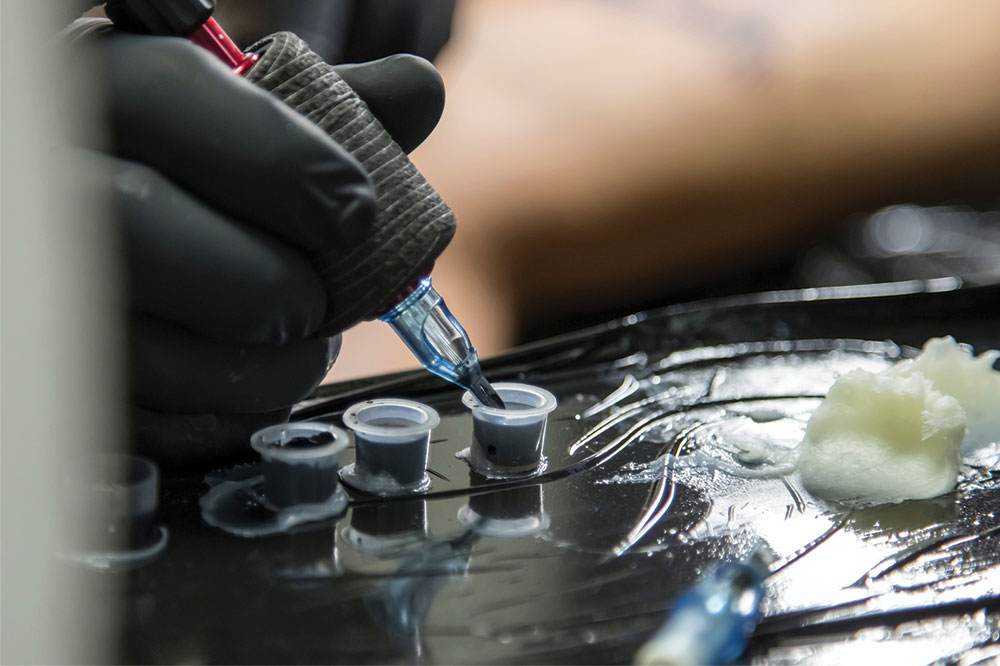Comprehensive Guide to Selecting the Best Tattoo Inks for Safe and Vibrant Results
Selecting the right tattoo ink is crucial for creating vibrant, long-lasting tattoos while ensuring client safety. This comprehensive guide explores key factors such as ingredient safety, ethical choices like cruelty-free inks, and choosing between powder and pre-dispersed inks. Reputable brand selection and transparency are emphasized to prevent health risks and counterfeit products. With detailed insights into ink types and ethical considerations, this article helps aspiring and professional tattoo artists make informed decisions to enhance their craft and uphold high safety standards, leading to outstanding results and satisfied clients.

Comprehensive Guide to Selecting the Best Tattoo Inks for Safe and Vibrant Results
Starting a career or hobby in tattoo artistry can be incredibly fulfilling, but it requires a solid understanding of all necessary tools, especially tattoo inks. Choosing the right ink is crucial not only for creating stunning artwork but also for ensuring the safety and health of your clients. Given the numerous options available on the market, artists need to consider various factors to make informed selections. This detailed guide explores the essential aspects of selecting high-quality tattoo inks, including safety standards, material compositions, ethical considerations, and more.
Prioritize the Use of High-Quality, Premium Tattoo Inks
The quality of tattoo ink directly impacts the visual outcome of the artwork and the long-term health of the client's skin. Historically, some lower-quality inks contained harmful substances like heavy metals, lead, arsenic, or plastics that could pose health risks over time. Modern formulations, however, have advanced significantly, and most reputable brands now produce inks free from such toxic components. When selecting inks, it’s fundamental to scrutinize the ingredients list. Look for products that specify their safety standards, are compliant with health regulations, and have undergone rigorous testing. Premium inks tend to have more vibrant hues, better aging properties, and produce cleaner, more consistent lines, making them the preferred choice for professional artists who aim for excellence in their craft.
When evaluating the ingredients of tattoo inks, direct communication with manufacturers is vital. Many companies safeguard their formulations as trade secrets, which can make it challenging to assess safety. Therefore, transparency from brands concerning their ingredient list is a key indicator of reliability. If a manufacturer refuses to disclose their formula or avoids answering questions regarding safety and health standards, it may be prudent to consider alternative brands. Remember, ink products should clearly state whether they contain hazardous substances, and their safety data sheets should be accessible for review.
Opt for Cruelty-Free and Vegan Tattoo Inks
Ethical considerations are increasingly influencing purchasing decisions in the tattoo industry. Choosing cruelty-free inks—those that are not tested on animals—aligns with humane practices and often correlates with safer, more environmentally friendly manufacturing processes. Vegan tattoo inks, which exclude animal-derived ingredients like gelatine or certain colorants, are now widely available. These inks are generally formulated to be gentler on sensitive skin and deliver consistent, vibrant colors that last longer. Many reputable brands now market vegan and cruelty-free options, making it easier than ever for artists to adhere to ethical standards without compromising on quality. Thorough research online or through trusted suppliers can help you find these safer alternatives, aligning your practice with ethical tattooing standards and providing peace of mind to your clients.
Carefully Select Your Ink Type Based on Your Need and Style
Tattoo inks come primarily in two forms: powder ink and pre-dispersed ink. Each has its unique advantages and ideal applications. Powder inks, which have a long tradition in tattooing, consist of concentrated pigments that are mixed with a carrier liquid by the artist. This approach allows for customization, especially in blending specific shades or creating unique color mixtures tailored to individual designs. However, it requires proper knowledge of mixing ratios, stability, and sterilization to avoid contamination. Pre-dispersed inks, on the other hand, are ready to use straight from the bottle, offering consistency, ease of application, and vibrant color intensity. They are ideal for artists seeking quick, reliable results for standard designs. Your choice should depend on your experience level, preferred style, and specific project requirements. Experimenting with both types can help you understand which fits your workflow best.
Choose Reputable, Certified Brands to Ensure Safety and Quality
For professional tattooing, brand reputation and safety certifications are non-negotiable. Trusted brands have undergone certification processes by health and safety authorities, ensuring they meet strict standards for purity, consistency, and safety. Avoid counterfeit or imitation products that mimic popular brands, as these often lack quality control and could contain harmful contaminants. Reputable manufacturers provide detailed safety data sheets, ingredient transparency, and positive reviews within the industry, offering peace of mind. Investing in quality inks from well-known brands enhances the overall quality of your work, minimizes health risks to clients, and affirms your professionalism in the industry. Always verify the legitimacy of your ink supplier and refrain from compromising safety for cost savings.
To summarize, choosing the right tattoo inks involves careful consideration of safety, quality, ethical standards, and compatibility with your artistic style. Prioritize premium, transparent, cruelty-free options from reputable brands, and select the ink type that best suits your techniques. By following these comprehensive guidelines, tattoo artists ensure high-quality results and safeguard client well-being, establishing a reputation for professionalism and excellence in the craft.





